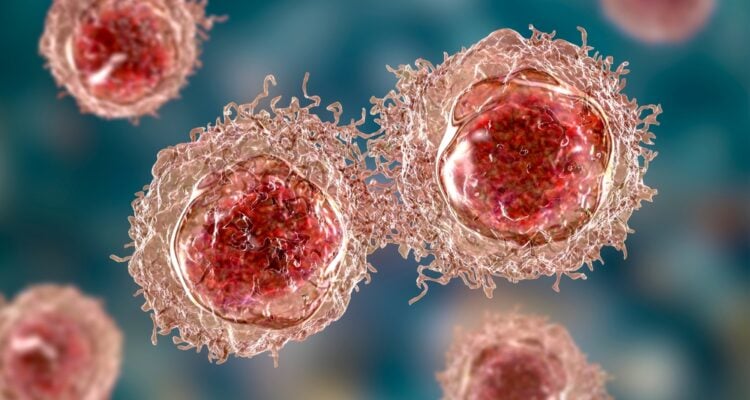Study by researchers in Israel finds mechanism linking heart disease to cancer.
By World Israel News Staff
Heart disease and cancer may be causally linked, according to a new study conducted by scientists in Israel which found that hearts suffering from cardiovascular disease release molecules which may increase the risk of developing cancer.
Researchers at Tel Aviv University (TAU) and the Leviev Cardiothoracic and Vascular Center at the Sheba Medical Center have found a mechanism which could be responsible for increasing the risk of developing cancer among patients with heart disease: those small extracellular bubbles, or vesicles (sEVs), that are secreted from the sick heart to heal itself are released into the bloodstream – and promote the growth of cancer cells throughout the body.
The researchers estimate that the important discovery may improve the protocols for treating heart disease so that clinicians also consider the increased risk of cancer.
The study was funded by the Israel Cancer Association and the Israel Science Foundation.
The research was conducted under the leadership of Prof. Jonathan Leor from the Neufeld Cardiac Research Institute, Faculty of Medical & Health Sciences at Tel Aviv University and the Taman Institute at Sheba’s Leviev Center and his student Tal Caller, a medical and research student at Tel Aviv University’s School of Medicine. The research was published in the important medical journal Circulation.
“In 2013, the Israeli cardiologist Tal Hasin showed for the first time that there is a connection between heart failure and cancer,” Caller explains.
“Patients with heart disease are at a higher risk of developing cancer, and since heart disease is already a leading cause of death–first place in the US and second place in Israel – that means that many people are at risk.”
“Our research revealed that the diseased heart secrete a cancer-promoting factors, which we identified as small extracellular vesicles (sEVs).”
“These are tiny particles wrapped in a simple membrane, which all cells secrete, but because of heart damage, these vesicles are released in greater quantities and contain factors related to inflammation, healing, growth, creation of new blood vessels, and changes in the immune system. These vesicles move through the circulatory system and eventually reach the tumor or the pre-cancerous tissue.”
Caller adds, “Following an injury in the heart muscle and deterioration to heart failure, sEVs containing growth factors and small nucleic acid molecules that promote cell division are released. These sEVs contribute to the healing of the injured cardiac tissue. However, released from the injured heart, those vesicles move within the body’s circulatory system, eventually targeting cancerous growths.”
Prof. Jonathan Leor said the research creates a new way of looking at the relationship between heart disease and cancer.
“Many theories have been proposed to explain the increased risk of cancer in heart patients. They started with shared risk factors such as smoking, diabetes, and obesity and ended with a single protein or molecule.”
“We showed for the first time that the diseased heart secretes sEVs that contain thousands of different growth factors. These bubbles directly promote the growth of certain tumors and also modulate the immune system, making the body more vulnerable to tumor growth.”
To test their hypothesis, the researchers at TAU inhibited the formation of sEVs in animal models with heart disease and found that the risk of cancer decreases along with the inhibition of vesicle production.
However, this is not a viable therapeutic option since inhibiting the production of the vesicles causes severe undesired side effects.
“When you systemically inhibit the formation of sEVs, you get less cancer – but you cause collateral damage along the way,” Leor continued.
“That is why we tried a different strategy: treat the patient’s heart to reduce the damage to the cardiac tissue so that it secretes fewer sEVs. We used spironolactone, which is a well-known, old, and effective drug used to treat heart failure.”
“We treated the animals with spironolactone at a very early stage of the disease and found that the heart secreted 30% fewer sEVs– and the cancerous tumors grew more slowly. Our experiment shows that it is possible to intervene in heart disease in a way that reduces the risk of cancer among heart patients.”
As for the clinical implications of the study, Caller said that it would take time to determine whether the research justifies changes in the standard of care.
“It may be necessary to adjust the existing treatments for the heart so that they also consider the risk of cancer. In addition, it is possible to find biomarkers among heart patients that will indicate an increased risk of cancer since not all patients are at an increased risk. This is basic research, and much work is still required to unravel the connection between the two.”





